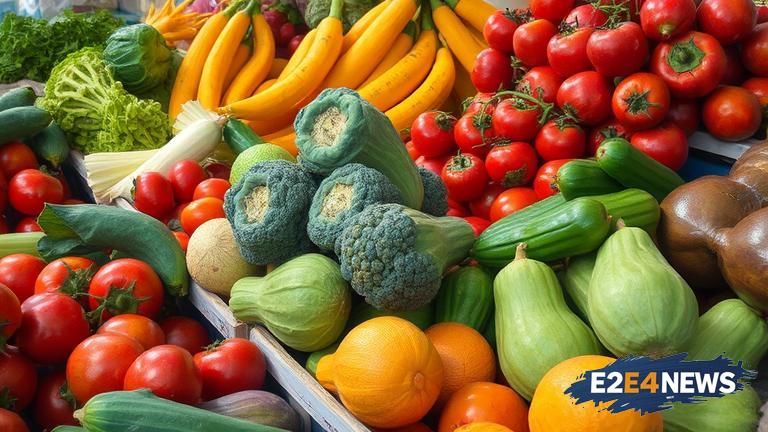Bangladesh has been experiencing a surge in fruit and vegetable production, with many farmers enjoying high yields. However, the country’s exports of these products have remained relatively low. One of the main reasons for this is the lack of proper infrastructure, including cold storage facilities and transportation networks. This makes it difficult for farmers to get their products to market quickly and efficiently, resulting in a significant amount of waste. Additionally, Bangladesh’s fruit and vegetable sector is heavily reliant on traditional farming methods, which can make it difficult to meet the standards of international markets. Many countries have strict regulations and quality control measures in place, which can be a barrier to entry for Bangladeshi exporters. Furthermore, the country’s farmers often lack the necessary training and support to produce high-quality products that meet international standards. The government has implemented various initiatives to support the sector, including providing subsidies and training programs for farmers. However, more needs to be done to address the underlying issues and help Bangladeshi fruit and vegetable exporters compete on the global stage. The country’s geographic location can also be a challenge, with many potential markets located far away. This can make transportation costs high and logistics complicated. Despite these challenges, there are still opportunities for Bangladesh to increase its fruit and vegetable exports. The country has a unique advantage in terms of its climate and soil, which allows it to produce a wide range of fruits and vegetables. With the right support and infrastructure, Bangladeshi farmers could be producing high-quality products that are in demand around the world. The government and private sector will need to work together to address the challenges facing the sector and help Bangladeshi fruit and vegetable exporters achieve their potential. This could involve investing in infrastructure, providing training and support to farmers, and helping to promote Bangladeshi products in international markets. By doing so, Bangladesh could increase its exports and help to reduce poverty and improve food security in rural areas. The fruit and vegetable sector has the potential to be a major driver of economic growth and development in Bangladesh, but it will require a concerted effort to overcome the challenges it faces. With the right approach, Bangladesh could become a major player in the global fruit and vegetable market, providing benefits to farmers, exporters, and consumers around the world. The country’s farmers are already producing a wide range of high-quality products, including mangoes, potatoes, and tomatoes. These products are in demand around the world, and with the right support, Bangladeshi exporters could be meeting this demand and earning valuable foreign exchange. The government has recognized the potential of the fruit and vegetable sector and has implemented various initiatives to support it. However, more needs to be done to address the underlying challenges and help the sector achieve its potential. This could involve investing in research and development, providing training and support to farmers, and helping to promote Bangladeshi products in international markets. By doing so, Bangladesh could increase its exports and help to reduce poverty and improve food security in rural areas. The fruit and vegetable sector has the potential to be a major driver of economic growth and development in Bangladesh, and it is an area that deserves more attention and support from the government and private sector. Bangladesh’s geographic location and climate make it an ideal place for producing a wide range of fruits and vegetables, and with the right approach, the country could become a major player in the global market. The country’s farmers are already producing high-quality products, and with the right support, they could be producing even more and earning valuable foreign exchange. The government and private sector will need to work together to address the challenges facing the sector and help Bangladeshi fruit and vegetable exporters achieve their potential. This could involve investing in infrastructure, providing training and support to farmers, and helping to promote Bangladeshi products in international markets. By doing so, Bangladesh could increase its exports and help to reduce poverty and improve food security in rural areas.





